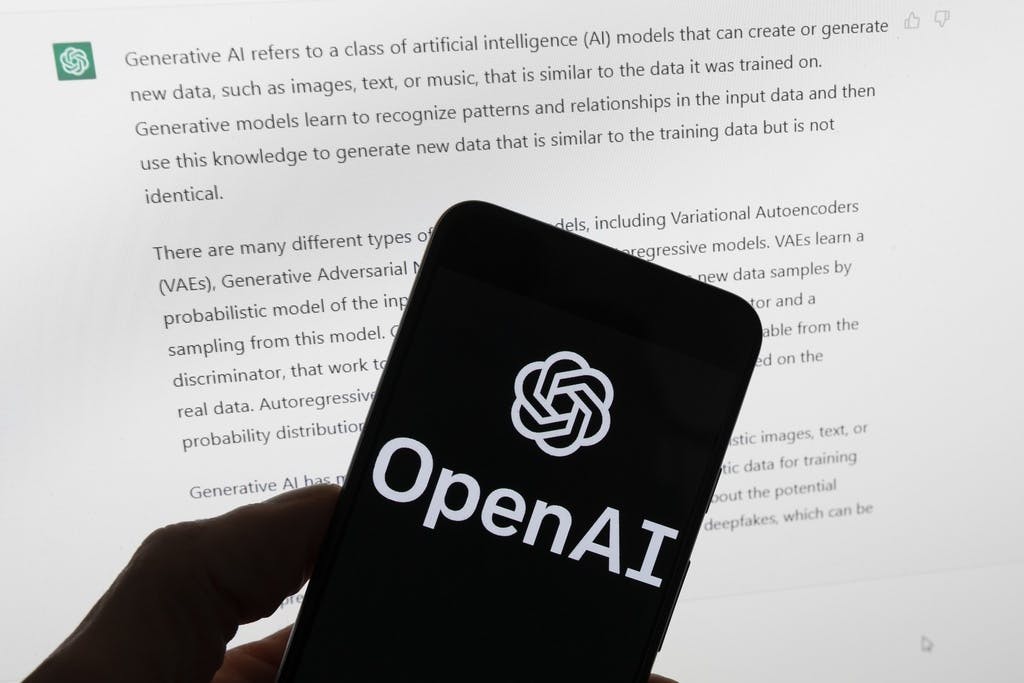Artificial Intelligence Is Progressing Too Quickly, Tech Titans Say, Urging Companies To Slow Down
One group went so far as to ask the Federal Trade Commission to open an investigation into the release of the most popular artificial intelligence program, ChatGPT.

Leaders in the tech industry are asking companies that produce potentially game-changing artificial intelligence products like ChatGPT to hit the pause button on further development until society can gauge the potential impact of the new technology.
On Thursday, one such group, a Washington-based nonprofit called the Center for AI and Digital Policy, went so far as to ask the Federal Trade Commission to open an investigation into the release of the most popular such program, ChatGPT, by OpenAI, and suspend further development beyond its latest iteration, GPT-4, until the agency can determine whether it violates federal consumer protection laws about unfair and deceptive trade practices.
“We are at a critical moment in the evolution of AI products,” the group’s chairman, Merve Hickok, said. “We recognize the opportunities and we support research. But without the necessary safeguards established to limit bias and deception, there is a serious risk to businesses, consumers, and public safety. The FTC is uniquely positioned to address this challenge.”
The group believes OpenAI violated a section of the FTC Act that prohibits unfair and deceptive business practices. The complaint said that its product is “biased, deceptive, and a risk to privacy and public safety,” and that the large language model it employs is not transparent or empirically sound.
The center’s president, Marc Rotenberg, is one of dozens of tech leaders — the Tesla founder, Elon Musk, and an Apple co-founder, Steve Wozniack, among them — who signed a widely circulated letter earlier this week urging the companies operating in the artificial intelligence space to pause development for six months and give the world time to process the potential of the new technology.
“Advanced AI could represent a profound change in the history of life on Earth, and should be planned for and managed with commensurate care and resources,” the letter, which as of Thursday had more than 1,400 co-signers, from the Future of Life Institute said.
“Contemporary AI systems are now becoming human-competitive at general tasks, and we must ask ourselves: Should we let machines flood our information channels with propaganda and untruth? Should we develop nonhuman minds that might eventually outnumber, outsmart, obsolete and replace us? Should we risk loss of control of our civilization?” the letter said.
“Such decisions must not be delegated to unelected tech leaders,” it said. “Powerful AI systems should be developed only once we are confident that their effects will be positive and their risks will be manageable.”
The letter said developers should pause work on their projects until policymakers can come up with regulatory mechanisms to keep them in check. Among the regulations suggested are oversight and tracking of the systems, developing watermarks to distinguish real from fake outputs, AI safety research, and institutions to cope with the inevitable political and economic disruptions that will occur as the technology evolves.
California-based OpenAI, the current leader in the space, was founded as a nonprofit in 2015 with Mr. Musk as one of its early supporters. According to a report from Semafor, Mr. Musk had a falling out with another co-founder, Sam Altman, over the pace of progress at the company, and left in 2018, taking his funding with him. OpenAI is now teamed up with Microsoft.
The sudden and unanticipated success of ChatGPT has sparked something of an arms race in the industry, with dozens of companies scrambling to develop similar products or working on ways to incorporate it into existing ones. Google, IBM, Amazon, and China’s Alibaba are all forging ahead with their own versions of large-language models such as ChapGPT.
Concern about the technology revolves around its ability to mimic many human endeavors such as writing or speech almost too well. Fake images can be generated almost instantly, and the technology can write everything from computer code to symphonies in seconds. In the four months that it has been in the public domain, the technology has already been widely adopted by students to write term papers and other assignments that are barely distinguishable by teachers from those written by real authors.
Like most Americans, lawmakers in Washington are struggling to understand artificial technology — much less begin to figure out how to regulate it. A California Democratic congressman, Ted Lieu, wrote in an essay in the New York Times in February that Congress needs to quickly establish some guardrails for the technology.
“As one of just three members of Congress with a computer science degree, I am enthralled by A.I. and excited about the incredible ways it will continue to advance society,” Mr. Lieu wrote. “And as a member of Congress, I am freaked out by A.I., specifically A.I. that is left unchecked and unregulated.”
Others are urging a more hands-off approach.
“To allow for continued growth, advocates should be wary of government efforts that might harm further innovation,” the libertarian-leaning R Street Institute’s Shoshana Weissmann said. If Congress wants to regulate this new technology, “its first priority should be allowing for the maximum level of experimentation and innovation, and not ending its potential before it has even begun.”

